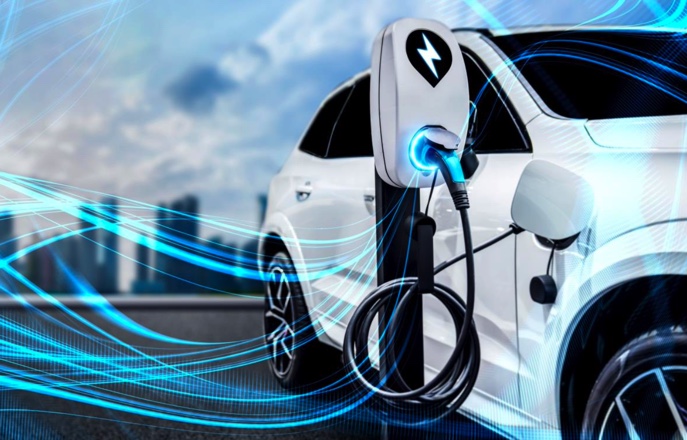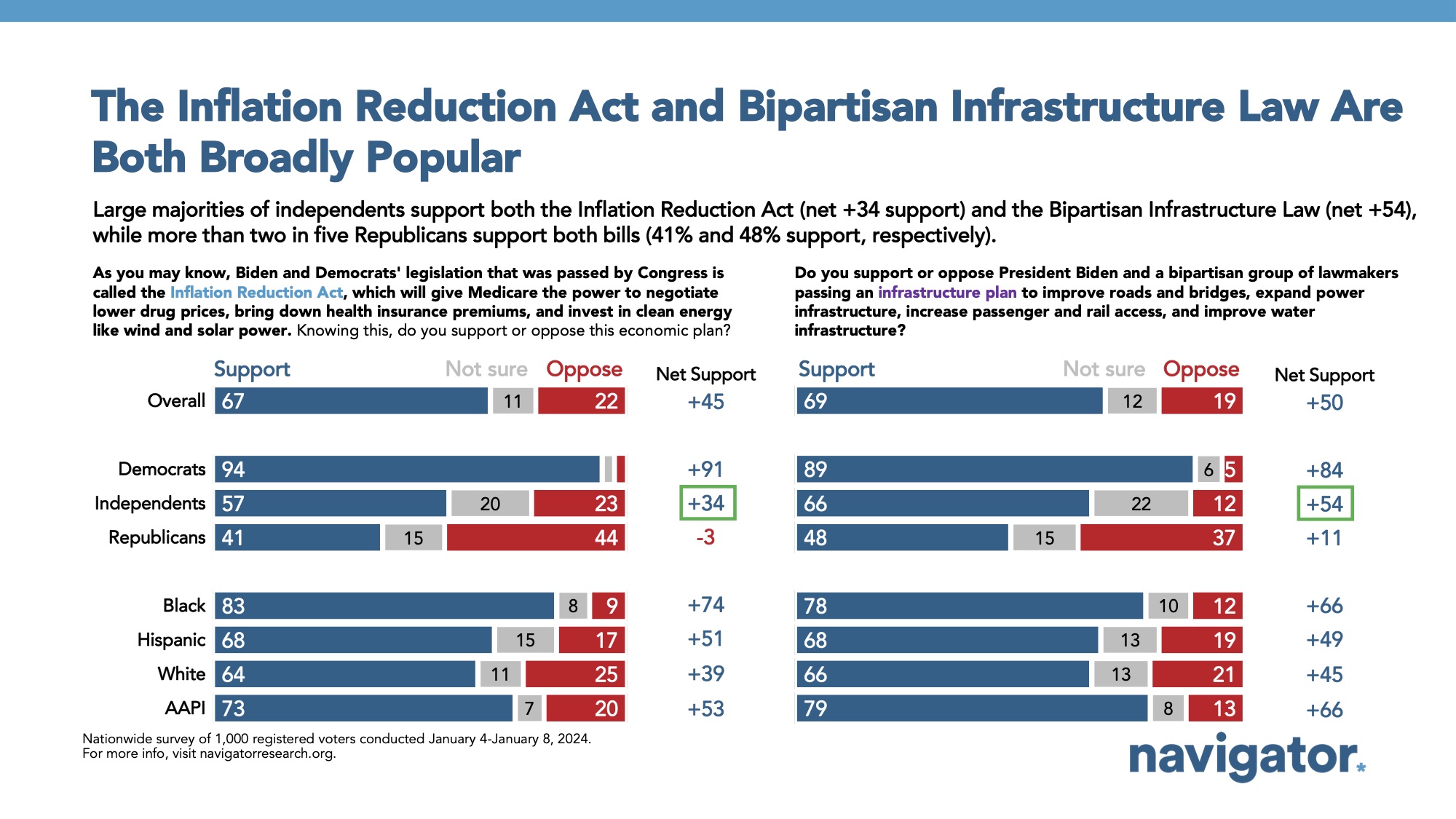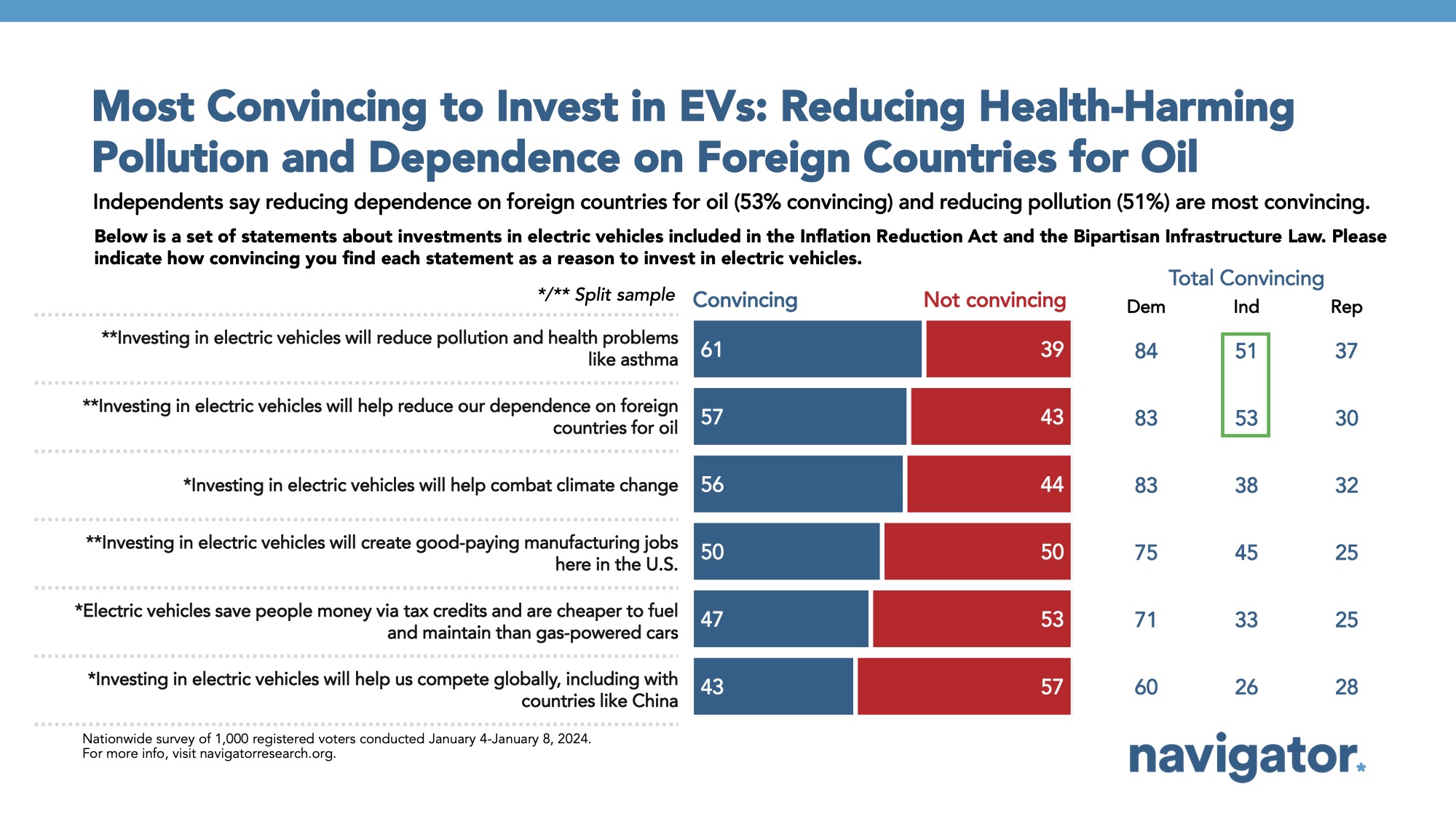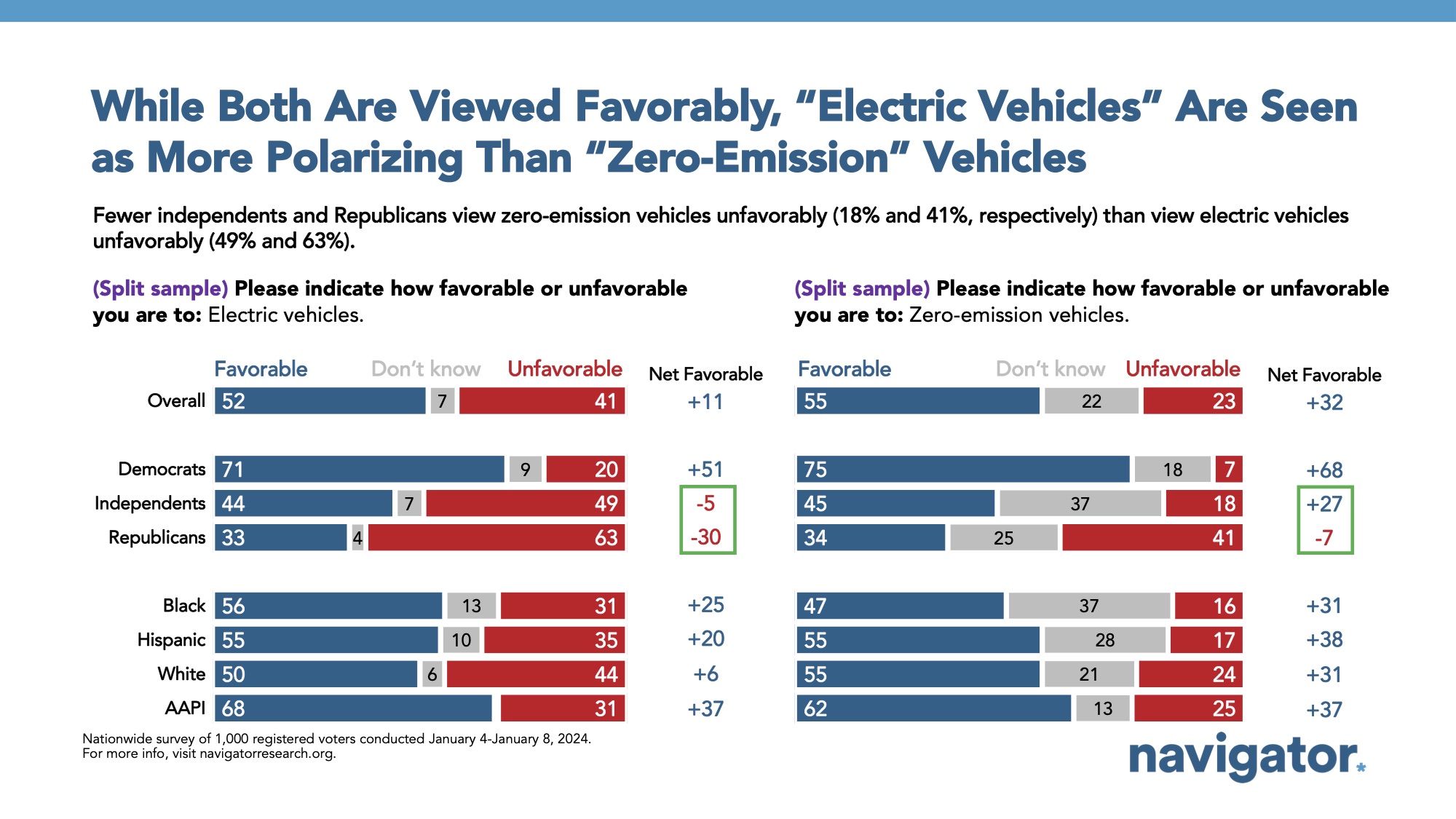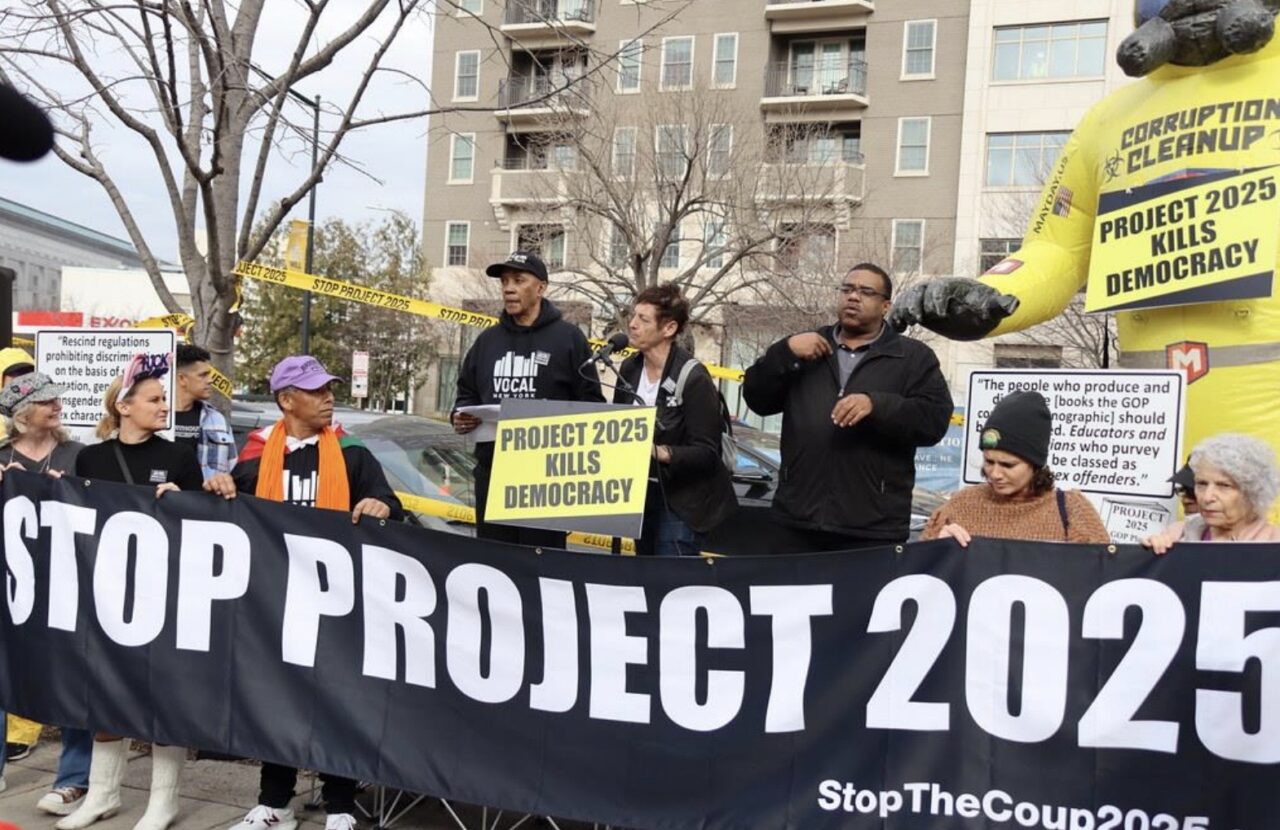Poll: Infrastructure and Electric Vehicles
This Navigator Research report contains polling data tracking public support for both the Inflation Reduction Act and the Bipartisan Infrastructure Law, the most convincing reasons to support investments in electric vehicles that are included in these laws, and differences in how “electric vehicles” and “zero-emission vehicles” are perceived.
Majorities continue to support both the Inflation Reduction Act and the Bipartisan Infrastructure Law.
Nearly seven in ten Americans support both the Inflation Reduction Act and Bipartisan Infrastructure Law, which have both been consistent throughout Navigator’s tracking in the last two years. By a 45-point margin, two in three Americans support the Inflation Reduction Act “which will give Medicare the power to negotiate lower drug prices, bring down health insurance premiums, and invest in clean energy like wind and solar power” (67 percent support – 22 percent oppose), including more than nine in ten Democrats (94 percent), nearly three in five independents (57 percent), and two in five Republicans (41 percent). Support is also particularly high among Black Americans (83 percent), Asian Americans and Pacific Islanders (74 percent), and those working in the service industry (71 percent).
- The Bipartisan Infrastructure Law that will “improve roads and bridges, expand power infrastructure, increase passenger and rail access, and improve water infrastructure” earns similar levels of broad support (net +50; 69 percent support – 19 percent oppose), including 89 percent of Democrats, two in three independents (66 percent), and a plurality of Republicans (net +11; 48 percent support – 37 percent oppose). Support for the Bipartisan Infrastructure Law is also higher among Asian Americans and Pacific Islanders (79 percent), Black Americans (78 percent), and those living in households with at least one union member (75 percent).
The most convincing reasons to support investments in electric vehicles are reducing pollution and health problems, and reducing our dependence on foreign countries for oil.
While a number of reasons are viewed by majorities of Americans as convincing to support investments in electric vehicles, the top two overall and among independents in particular include:
- Investing in electric vehicles will reduce pollution and health problems like asthma (61 percent convincing, including 51 percent of independents who find this to be convincing); and,
- Investing in electric vehicles will help reduce our dependence on foreign countries for oil (57 percent convincing, including 53 percent of independents who find this to be convincing).
While both are viewed favorably, “electric vehicles” are seen as more polarizing than “zero-emission vehicles.”
Majorities of Americans are favorable toward “electric vehicles” by a double-digit margin (net +11; 52 percent favorable – 41 percent unfavorable), and while a similar share are favorable toward “zero-emission vehicles,” far fewer are unfavorable toward them (net +32; 55 percent favorable – 23 percent unfavorable). This difference is driven in large part by Republicans, who are a net 23 points more favorable toward “electric vehicles” (net -30; 33 percent favorable – 63 percent unfavorable) than “zero-emission vehicles” (net -7; 34 percent favorable – 41 percent unfavorable), and independents, who are a net 32 points more favorable toward “electric vehicles” (net -5; 44 percent favorable – 49 percent unfavorable) than zero-emission vehicles (net +27; 45 percent favorable – 18 percent unfavorable).
- Republicans who are regular consumers of Fox News are a net 37 points more favorable toward “zero-emission vehicles” (net -16; 34 percent favorable – 50 percent unfavorable) than “electric vehicles” (net -53; 23 percent favorable – 76 percent unfavorable); among Republicans who are not regular consumers of Fox News, they hold more positive and similar views toward “electric vehicles” (net -11; 41 percent favorable – 52 percent unfavorable) and “zero-emission vehicles” (net +1; 35 percent favorable – 34 percent unfavorable).
About The Study
Global Strategy Group conducted public opinion surveys among a sample of 1,000 registered voters from January 4-January 8, 2024. 100 additional interviews were conducted among Hispanic voters. 75 additional interviews were conducted among Asian American and Pacific Islander voters. 100 additional interviews were conducted among African American voters. 100 additional interviews were conducted among independent voters. The survey was conducted online, recruiting respondents from an opt-in online panel vendor. Respondents were verified against a voter file and special care was taken to ensure the demographic composition of our sample matched that of the national registered voter population across a variety of demographic variables.
